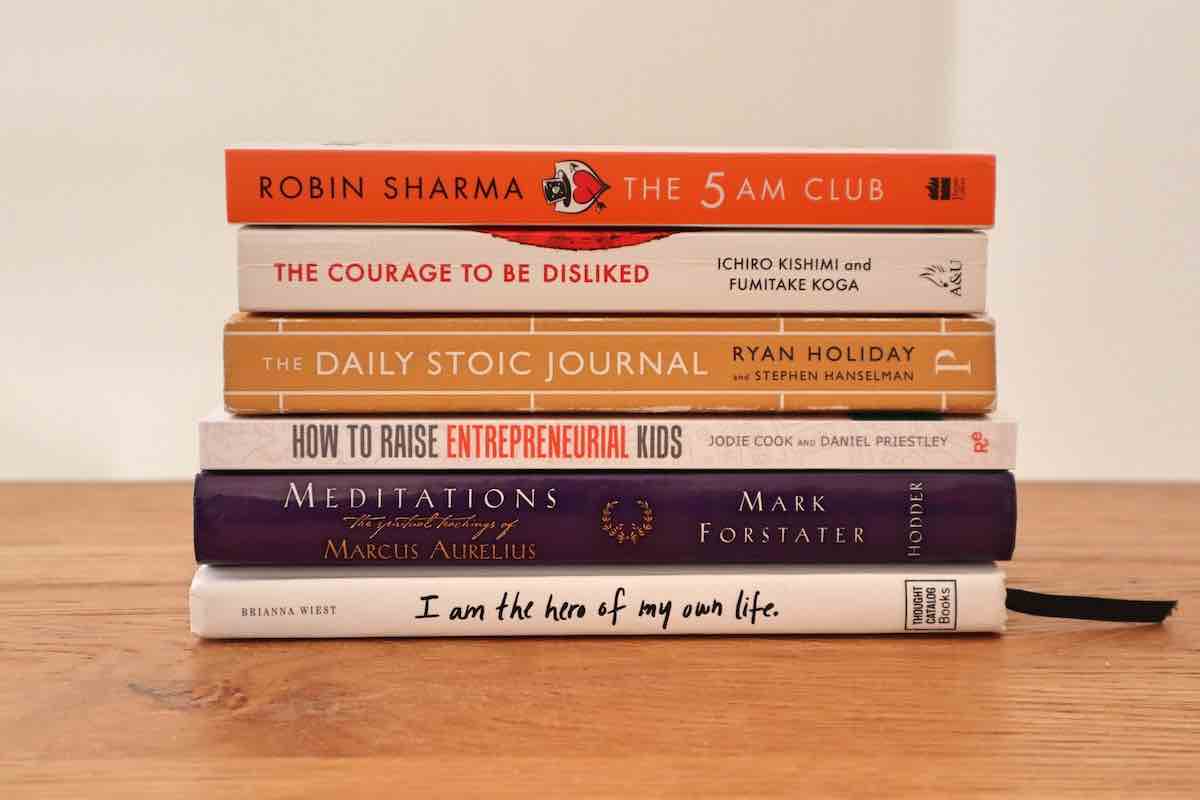Sports psychology and Stoicism have been embraced by every professional sport, and in turn the most successful athletes of our generation.
A useful toolkit, Stoic athletes attach themselves to their intent and actions, rather than the outcome, which is ultimately out of their control. In the example of a race, they’ll always be somebody faster than you, but running to your full potential is what matters most.
Notable Stoic athletes and coaches include Tom Brady and Michael Lombardi (American football), Kobi Bryant and Michael Jordan (Basketball), managers Jürgen Klopp, Sir Alex Ferguson and Pep Guardiola’ (Soccer), and the enduring grace of Roger Federer (Tennis), among others. The sports world is littered with disciples of the 2000-year-old school of thought.
→ Recommended reading: How much is a running coach?
Stoicism as a philosophy teaches calmness and preparedness in life, being, and morality to the practical problems one might face. Drawing heavily on the combative worlds of politics and battle, it’s no surprise Stoic ideas have many parallels with pro sports. On a personal note, Stoicism has also injected more discipline into my daily training runs and the ability to endure bigger runs, such as running the Hadrian’s Wall ultra.
Let’s find out why…
Stoic Athletes in a Nutshell – Spirituality Meets Athleticism
The central tenant of Stoicism is that body and mind are one. A healthy mind equals a healthy body—it’s strong, resilient, uncluttered, agile, and functional. A masterclass in managing emotion.
Put simply, it’s about preparing in the present for any eventuality in the future. Neutralizing unpredictability and focusing only what you can control, ignoring what you can’t. The Greek Stoic philosopher, Epictetus, said it best in his famous aphorism, “We cannot choose our external circumstances, but we can always choose how we respond to them.”
This preparedness and self-control plays out on the training ground and tactical applications in the arena. Deliberate practice and strategy meeting the infinite possibilities of race day or match day. Trusting the process of running a good race rather than obsessing over the race result.
Stoicism acts as a mental framework and armor you can lean on as you start running more seriously, and even competitively. Its teachings equally applicable to solo or team sports.
7 Ways Stoic Principles Benefit Runners and Athletes
#1: Control the Controllables – Focus on What Matters
Not everything is under your gift to change. Stoicism emphasizes separating what you can control from what you can’t, a technique now applied to sports psychology.
Common uncontrollables include the weather (read my running in cold weather tips), the crowd, other runners or the opposition, match officials, game time, and so on. Whereas controllables include your fitness levels, having the right kit, tactics, warm up, and preparing for different scenarios during training.
In the dynamic and unpredictable world of sport it is important to play your own game and maintain your cool under pressure. Wasting time and energy on factors outside your control leads to sub-optimal performance.
Your potential, the absolute best you’re capable of, is all that matters. Anyone can get lucky and win on occasion. But not everyone is the best possible versions of themselves.
The only real competition is with ourselves.

→ Related reading: Why Running Helps Us Think
#2: Know Yourself – Assess Your Strengths and Shortcomings
The first challenge we face is to be completely honest and objective about ourselves.
Stoicism adherent Marcus Aurelius believed in radical self-awareness and regular self-examination. Another, Epictetus, urged realism:
“Just as nothing great is created instantly, the same goes for the perfecting of our talents and aptitudes. We are always learning, always growing. It is right to accept challenges. This is how we progress to the next level of intellectual, physical, or moral development. Still, don’t kid yourself: If you try to be something or someone you are not, you belittle your true self and end up not developing in those areas that you would have excelled at quite naturally.”
Taking a critical view of oneself, seeking data and external counsel, is the perfect grounding for self-improvement. Pursue the truth to fulfill your potential and hone your decision-making.
As Marcus Aurelius puts it:
“If anyone can refute me––show me I’m making a mistake or looking at things from the wrong perspective––I’ll gladly change. It’s the truth I’m after, and the truth never harmed anyone.”
#3: Apply Yourself Daily – Put the Hard Yards in
Nothing good ever comes easy. Personal growth and sporting performance included.
Athletes have to endure pain and accept hard work as standard (e.g. hill jogging to strengthen the body). There’s very few shortcuts in the top tier of sport.
This includes committing to the cause and accepting sacrifices, especially on the bad days. Epictetus makes the point:
“Just as certain capacities are required for success in a particular area, so too are certain sacrifices required. … If true wisdom is your object and you are sincere, you will have work to do on yourself. You will have to overcome many unhealthy cravings and knee-jerk reactions.”
Hardship is a necessary part of greatness. Practice with intensity and view adversity for what it is – an opportunity for growth.
The best athletes know that strength and growth only come through continuous effort and struggle. Word hard, but rest well. Avoid running addiction.
💌 Inspiring Run Stories.. in Your Inbox
#4: Accept Defeat – You’re Getting Closer to Your Goal
“The impediment to action advances action. What stands in the way becomes the way.”
– Marcus Aurelius
For Stoic athletes, obstacles are welcome growth opportunities. If you play any sport, you are likely fail often. Especially when outcomes are binary, where there can only be a single winner and no draws. They’ll be times when you’re left asking “Why is running so hard?“.
However, if an athlete has prepared well and performed to potential, they move closer towards their goal, regardless of the result. Negative thoughts are quashed. Feelings put to one side.
Stoics choose to reflect on performances and persevere, even after many knock backs. They lived during some of the harshest times in human history. Wars, disease, famine, and political unrest were common threats. From those trials emerged many victories, including an age of relative peace, calmness and stability in the Roman Empire.
Stoics believe everything we face on race day (and in life) is an opportunity to respond with virtue. Just ask Kathrine Switzer, who became the first woman to run with a race number at the Boston Marathan, breaking the rules at the time (read our article “When was running invented?“).
#5: Set High Standards – Stoic Athletes do Whatever it Takes to Succeed
Stoic athletes have a clever knack of setting and keeping high standards. Trusting the process, knowing results will follow, rather than focusing on outside influences.
“Think things through and fully commit! Otherwise, you will be like a child who sometimes pretends he or she is a wrestler, sometimes a soldier, sometimes a musician, sometimes an actor in a tragedy. A half-hearted spirit has no power. Tentative efforts lead to tentative outcomes.”
Epictetus
It’s all too easy to get caught up in the high expectations of others. This undermines confidence and the inability to run your own race freely.
A Stoic athlete demands the best from themselves at all times, without compromise. This commitment leads to a natural calmness on race day, knowing they’ve done everything they can to give themselves the best chance of success. That’s all we can really expect of ourselves.
#6: Be Present – Stoic Philosophy Focuses on the Now
“Confine yourself to the present. Never let the future disturb you.”
– Marcus Aurelius
We’ve all seen the professional athlete who obsesses over past results or cracks under the weight of expectation.
A Stoic stays in the moment, assessing the situation in relation to their game plan. Never losing focus. They remain neutral yet still alert to the dynamic nature of competitive sport, ready and able to adapt to what’s in front of them. A cool head when others lose theirs. Free of non-helpful emotion.
A Stoic sportsperson also lets go of fear. Anxiety too. Dwelling on past mistakes can lead to a cycle of negativity and run of poor results, as you avoid taking risks in the future. And as we all know, overly safe play is often the riskiest strategy of them all.
“More is lost by indecision than wrong decision. Indecision is the thief of opportunity. It will steal you blind.”
Cicero
#7: No Excuses – Stoic Runners are Disciplined
Life isn’t a passive experience. A higher sense of accomplishment comes from knowing you’ve immersed yourself into something and given everything you can.
Stoics don’t need motivation to train. They’re experts in habit forming, which is about putting the reps in and seeing a task through.
As Epictetus rallies: “How long will you wait before you demand the best of yourself? … If you remain careless and lazy, making excuse after excuse, fixing one day after another when you will finally take yourself in hand, your lack of progress will go unnoticed, and in the end you will have lived and died unenlightened. Finally decide that you are an adult who is going to devote the rest of your life to making progress.”
In Summary: Body of an Athlete. Mind of a Stoic.
Whatever you’re trying to accomplish, Stoicism teaches many valuable lessons.
Great athletes have mastered the mental game of their sport, having leaned on Stoic principles to focus exclusively on what matters most, fine tune their decision making operating system, build their character, and maintain only the highest of standards. Ultimately trusting the process to become a better athlete.
Its essence: knowing you can only control the effort, not the results.

